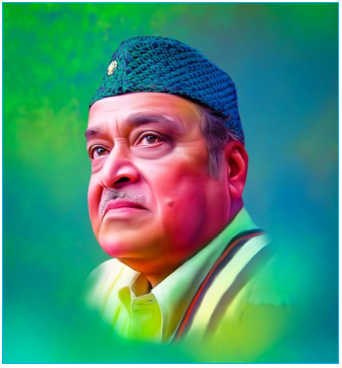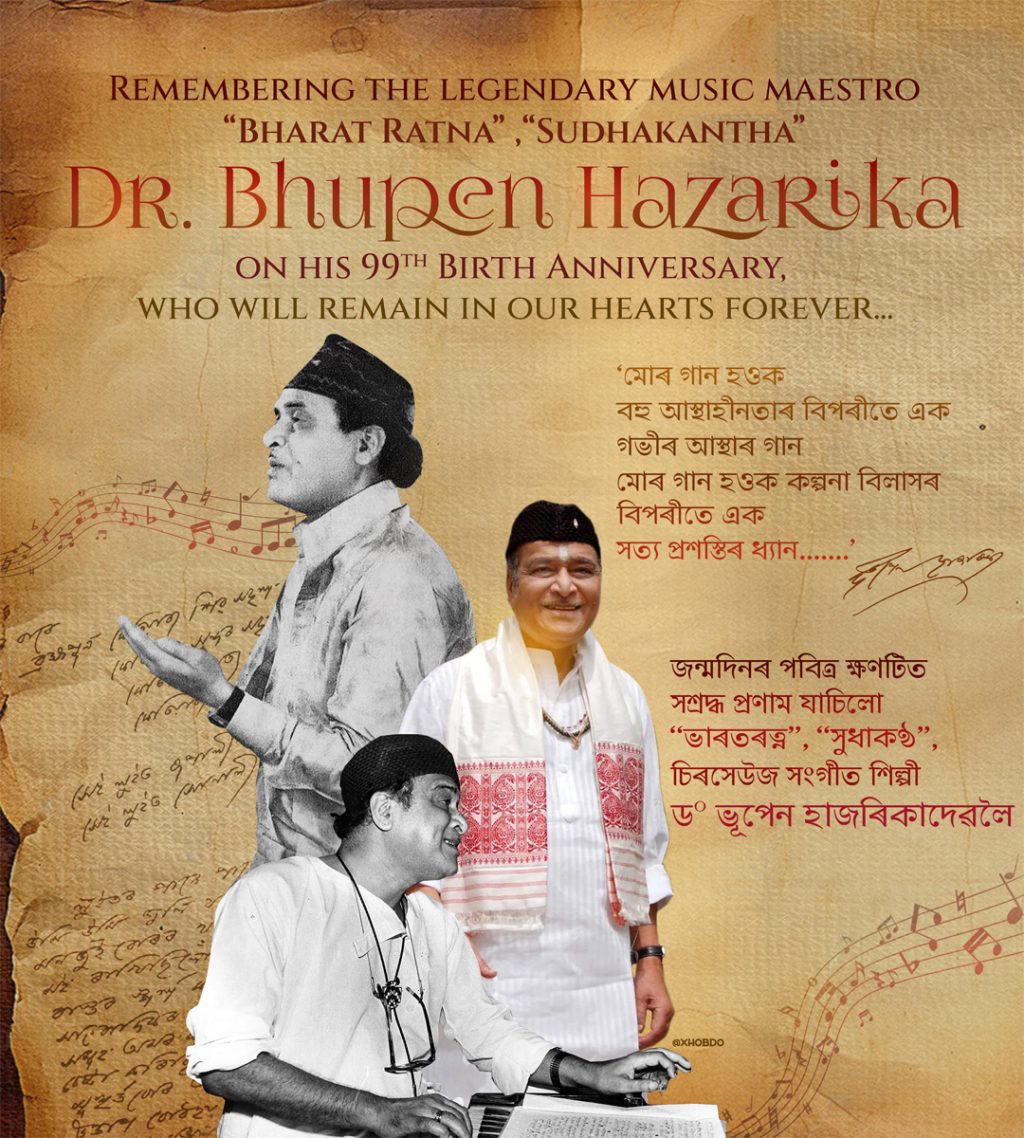SYLLABUS
GS-1: Literature, personalities of the modern times.
Context: The Prime Minister of India paid rich tributes to music maestro Bhupen Hazarika on his 99th birth anniversary on 8th September 2025.
About Dr. Bhupen Hazarika

• Revered as the “Bard of the Brahmaputra” and “Sudhakantha” (Nightingale of Assam), he lived and left a lasting legacy as a poet, singer, composer, lyricist, filmmaker, professor, politician and social reformer.
• He was born on September 8, 1926, in Sadiya, Assam, to Nilakanta and Shantipriya Hazarika.
• As a 10-year-old student in Tezpur, he was discovered by Jyotiprasad Agarwala and Bishnu Prasad Rabha.
• Between 1936 and 1940, he accompanied Agarwala to Kolkata, where he recorded his first songs for the Assamese film Indramalati (1939) and gained exposure to the film industry.
Education and Training
• He studied Political Science at Banaras Hindu University (BHU), where he was influenced by the music of Ustad Bismillah Khan and briefly worked at All India Radio in Guwahati after graduation.
• He won a scholarship to Columbia University, New York, where he completed his Ph.D. in Mass Communication.
• He was influenced by Paul Robeson’s folk and protest music, which inspired his Assamese adaptation “Bistirno Parore.”
Career in Music and Cinema
• On returning to India, he joined the Indian People’s Theatre Association (IPTA), using music as a tool for social awareness.
• He worked across Assamese, Bengali, and Hindi cinema, creating over 1,500 songs, directing 14 films, and scoring music for about 70 films.
Political and Social Engagement
• He served as an Independent MLA in the Assam Legislative Assembly from 1967 to 1972 and later as President of the Assam Sahitya Sabha in 1993.
• Later joined the Bharatiya Janata Party (BJP) and contested the Lok Sabha elections from Guwahati, though unsuccessfully.
• Throughout his life, he worked to promote fraternity and cultural unity among the diverse communities of Northeast India.
Awards and Recognition
• National Film Award (1975) for Chameli Memsahab.
• Dadasaheb Phalke Award (1992) for lifetime contribution to Indian cinema.
• Padma Shri (1977), Padma Bhushan (2001), and Padma Vibhushan (2012, posthumous).
• Bharat Ratna (2019, posthumous), India’s highest civilian honor.
• Muktijoddha Padak (2011, posthumous) by Bangladesh for supporting its Liberation Movement.
• Honoured with commemorative postal stamps and the Dr. Bhupen Hazarika Setu, India’s longest river bridge.
Later Life
• Served as Chairman of the Sangeet Natak Akademi and contributed significantly to India’s cultural institutions.
• His works consistently highlighted themes of solidarity, humanity, dignity, and resistance.
• He passed away on November 5, 2011.


